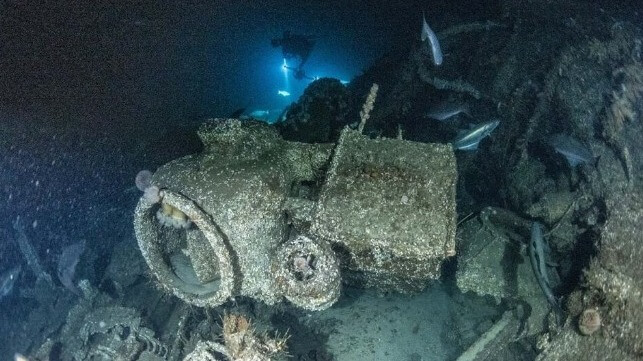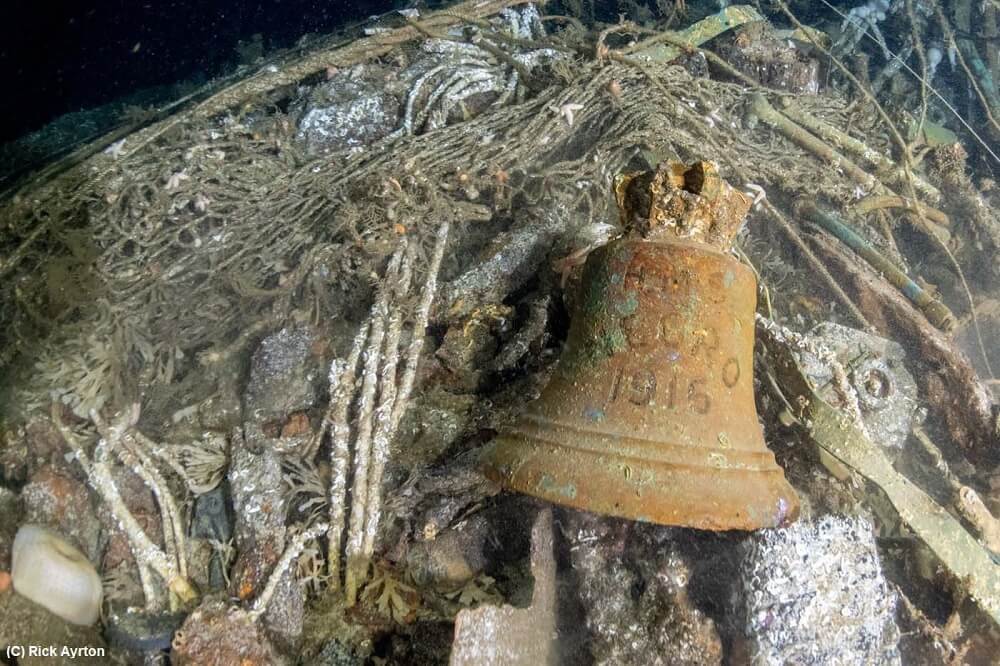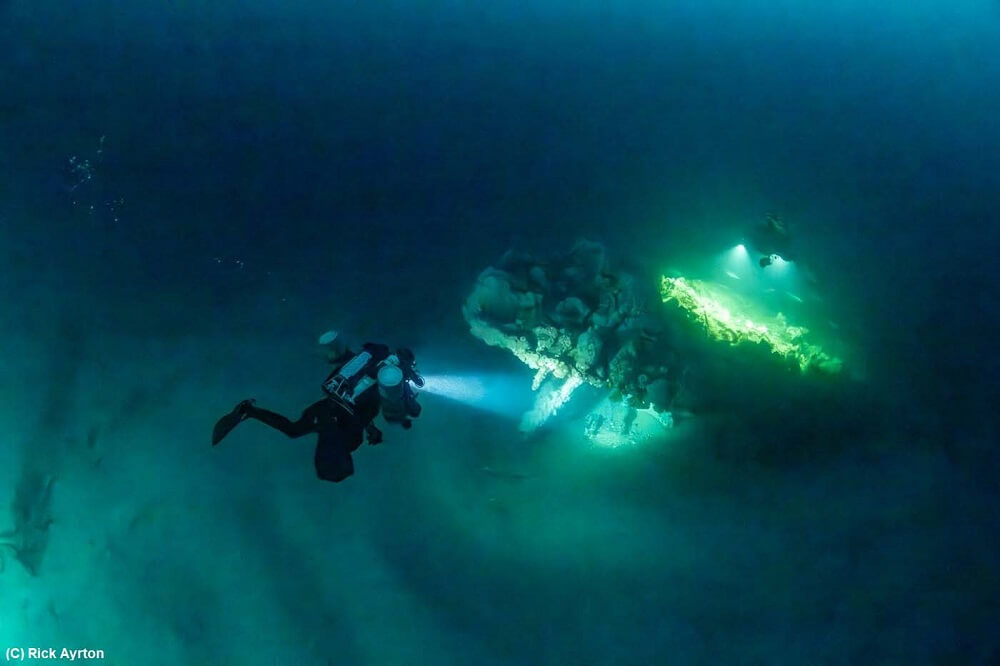Divers Discover Two Lost WWI Destroyers off Orkney

The wrecks of two WW1 Royal Navy destroyers – plus a merchant ship accidentally sunk when rammed by a British warship – have been identified by divers in Orkney.
HMS Hoste and Negro sank within hours of each other after colliding in December 1916 as they returned to the Fleet’s base in Scapa Flow, taking 55 souls with them.
And all aboard the small cargo steamer SS Express died when she was accidentally rammed and sunk by destroyer HMS Granville.
All three wrecks – plus a fourth, as-yet unidentified vessel – were found between Orkney and Fair Isle by the Lost in Waters Deep Expedition, a team of civilian divers determined to give peace of mind to families of seafarers by formally identifying lost vessels and their crew in Scottish waters.
Last year the divers discovered torpedo gunboat HMS Jason, sunk by a mine in the Inner Hebrides in 1917. This year, after extensive research in the archives and consultation of contemporary records and surviving ship’s logs by researcher Kevin Heath, the divers embarked diving support vessel MV Clasina in Orkney – and found the three wrecks they set out to discover.
“The dive team is delighted that we were able to prove Lost In Waters Deep remarkable research and help to honor the memories of everyone who died,” said expedition leader Will Schwarz.
Joining him in the cool Orkney waters was Lieutenant Commander Jen Smith, serving at Northwood, who’s also a keen amateur diver and wreck explorer.
Neither wreck was touched or disturbed by the divers, but they were extensively photographed and filmed. Their findings will be passed on to authorities and a detailed account of the expedition given at the Guz.tech diving conference in Plymouth in November.
“The fact that these wrecks have finally been found and identified is solely due to the commitment of a small group of civilians, who dedicate huge amounts of their own time and resource to this endeavor,” Lt Cdr Smith added.
“If it wasn’t for the efforts of the Lost in Waters Deep team, the final resting place of our lost sailors may never have been found. We are most grateful for the work they do and that the relatives and decedents of those lost now know the final resting place of their loved ones.”
Both warships lie around 100 meters (330ft) down. Hoste had been in service a month when the two ships sailed from Scapa Flow, the Royal Navy’s key base in both world wars, for exercises just six days before Christmas in 1916.


In the small hours of December 20, 1916, HMS Hoste suffered steering problems and was ordered to return to base, escorted by Negro. The two ships collided when Hoste was unable to maneuver due to a steering gear defect, and her escort was unable to avoid her.
Not only did HMS Negro smash into Hoste’s stern, but the collision also caused the release of depth charges which detonated and crippled Negro, and she sank fairly rapidly. Hoste was initially able to slowly proceed under her own steam, but a few hours later the worsening sea state caused the ship to break in two and she was also lost.
All but four of the 138 sailors aboard Hoste were rescued, but Negro lost 51 officers and men.
Separately, two Royal Marines gunners were among all 13 hands killed when the small steamer SS Express was struck by destroyer HMS Grenville in darkness in February 1918. The SS Express had an important role during the war as a supply vessel for the Orkney Islands, and has a special connection with Orcadians with almost all of her crew local men.
The opinions expressed herein are the author's and not necessarily those of The Maritime Executive.
